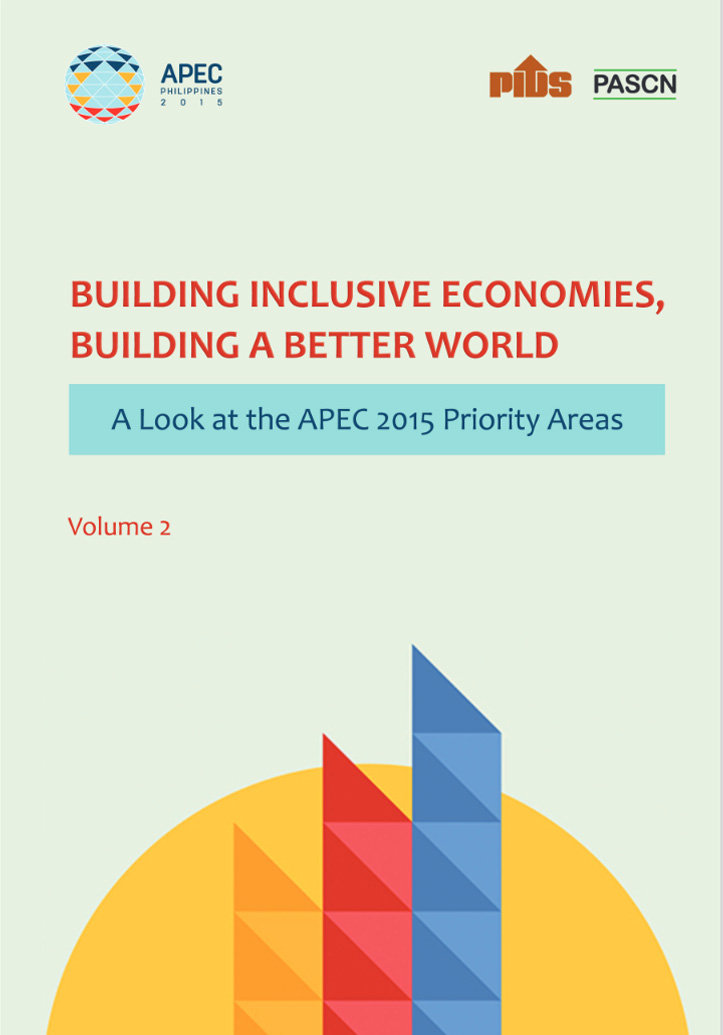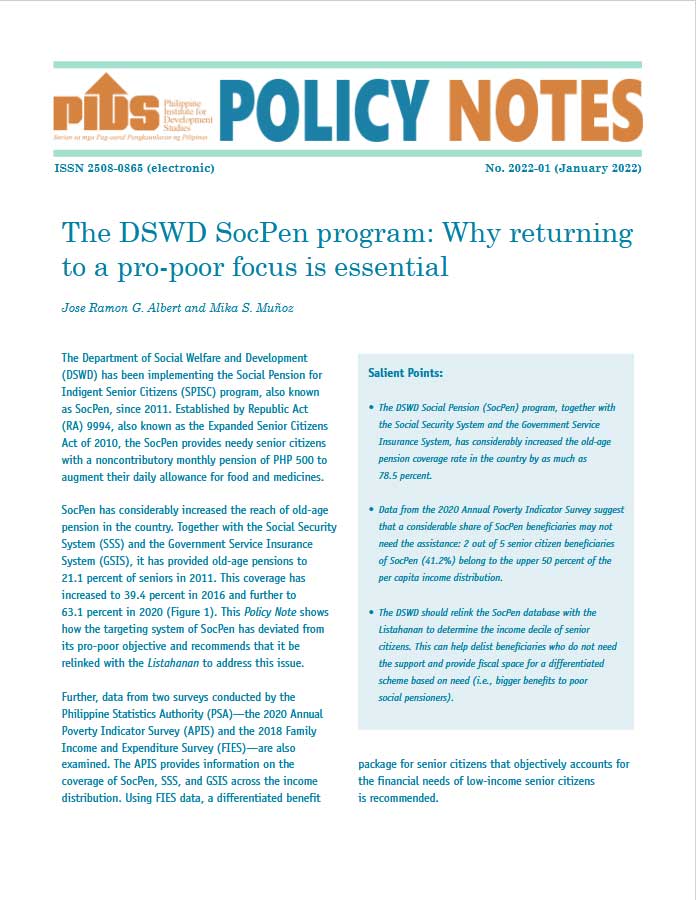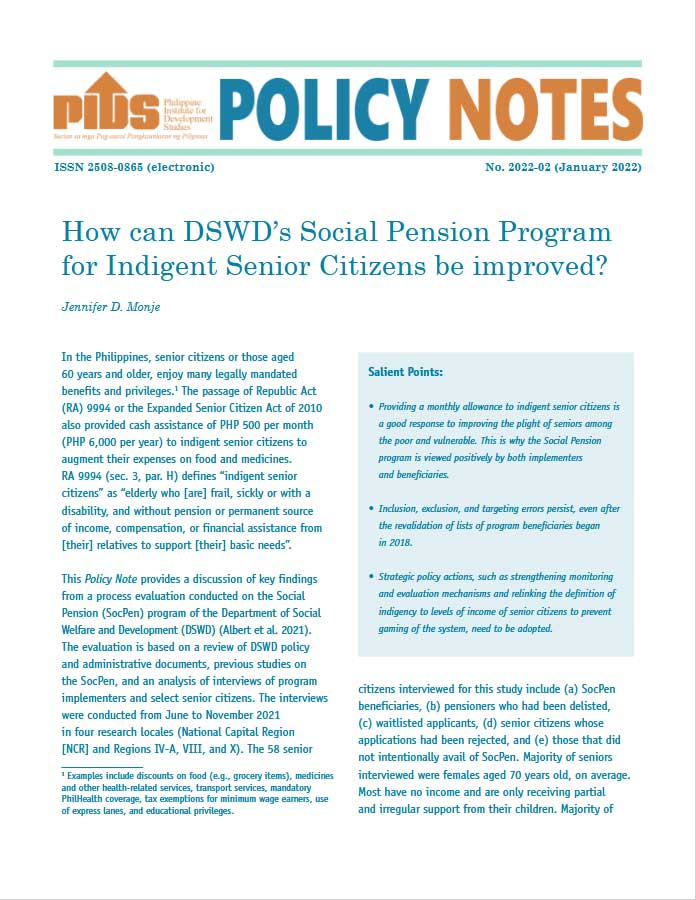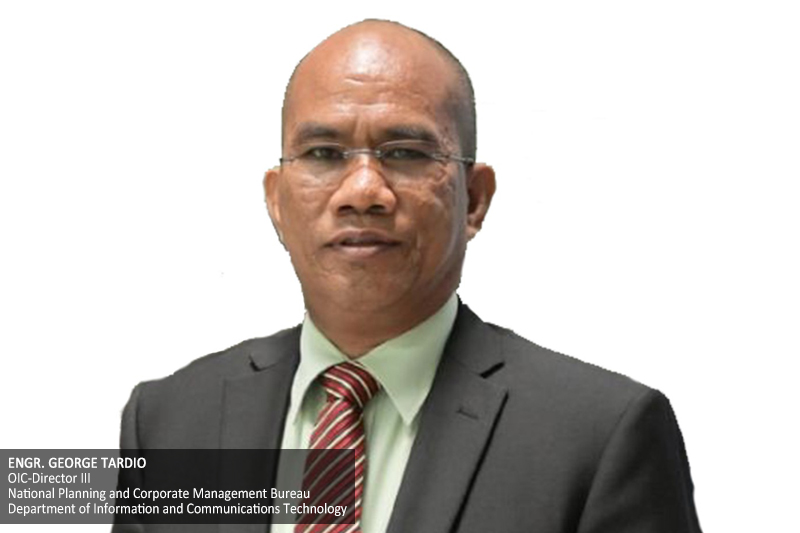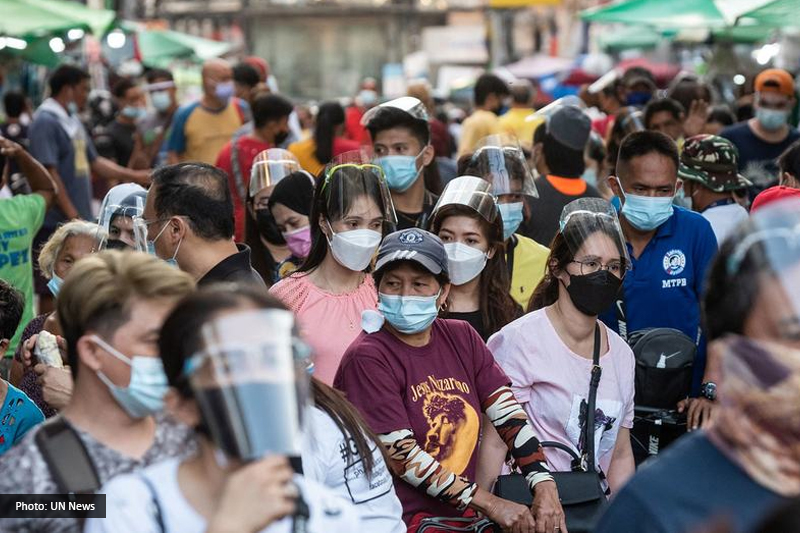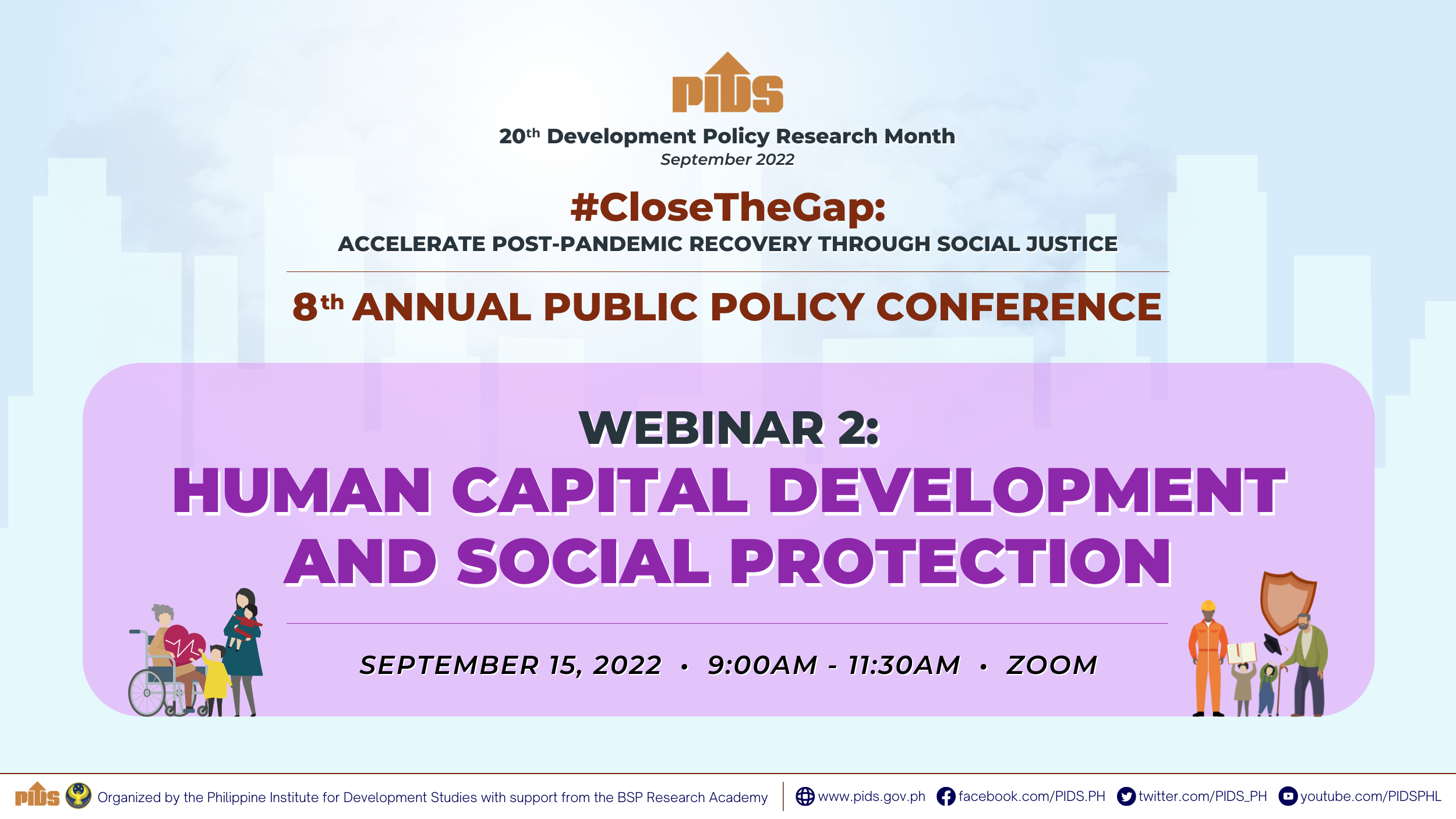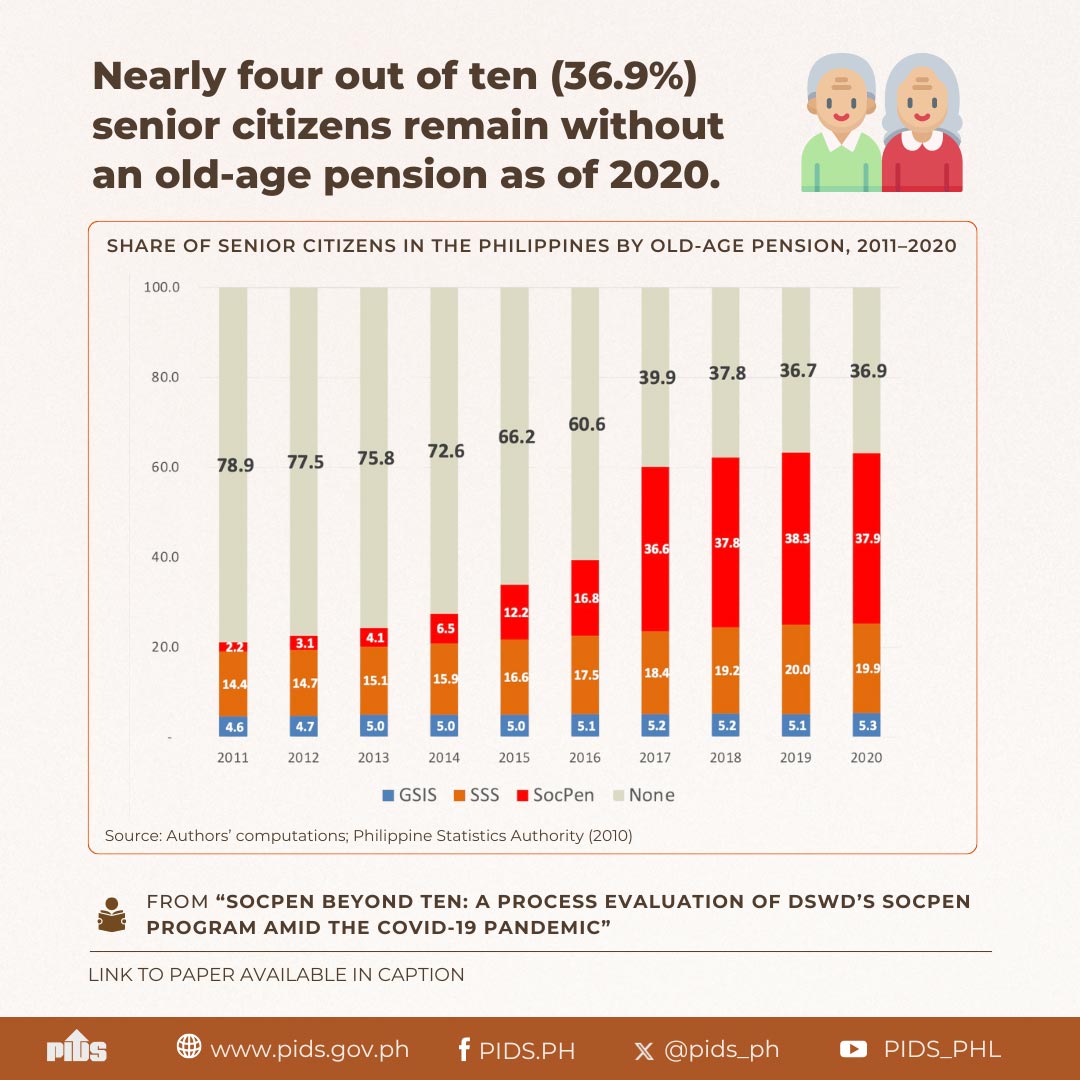About 400 researchers from all over the world are expected to converge in Manila on 19-21 June 2013, to attend the 14th Annual Global Development Network (GDN) Conference themed "Inequality, Social Protection and Inclusive Growth". The conference is being organized in partnership with the Asian Development Bank (ADB), the East Asian Development Network (EADN), and the Philippine Institute for Development Studies (PIDS). The venue will be at the ADB Headquarters in Ortigas Center, Mandaluyong City.
According to Dr. Josef T. Yap, PIDS president, "In the Philippines, the government's Pantawid Pamilyang Pilipino Program of conditional cash transfers is an example of a social protection measure that, in the short run, raises incomes and allows people to build their human capital, to eventually reduce poverty. This, and other similar social policies, will be among the topics to be taken up in the three-day conference."
In the aftermath of the global financial crisis and in view of the growing inequality in the developing world, issues related to social protection are becoming very crucial. More and more, policymakers are beginning to realize the benefits of social protection not only for long-term sustainable and inclusive growth, but also for political stability in developing countries.
Francois Bourguignon, chancellor of the Paris School of Economics and former chief economist of the World Bank, will be the keynote speaker. The topics to be discussed during the conference are: inequality conceptual and measurement issues; multidisciplinary dimensions of inequality; global perspectives on inequality; the determinants of inclusive growth; regional perspectives on inequality and inclusive growth; gender, inequality and social protection; structural vulnerability issues; mechanisms to promote social protection for inclusive growth; lessons learnt from social protection policies; sectoral experiences in the area of social protection and inclusive growth; key challenges for social protection policies; and inequality, social protection and inclusive growth in the context of the post-2015 development agenda.
Since its inception in 1999, GDN has organized conferences in almost every region of the world.
GDN conferences are unique, not just in the sheer numbers of people who attend, but also in the range of issues they discuss and the regions they represent. Another important feature of GDN conferences is that they provide promising young researchers from developing countries with the opportunity to showcase their research in an international forum and benefit from interaction with world-renowned academics and policymakers. This has important positive implications for research capacity building, a central element of the GDN mission.
According to Dr. Josef T. Yap, PIDS president, "In the Philippines, the government's Pantawid Pamilyang Pilipino Program of conditional cash transfers is an example of a social protection measure that, in the short run, raises incomes and allows people to build their human capital, to eventually reduce poverty. This, and other similar social policies, will be among the topics to be taken up in the three-day conference."
In the aftermath of the global financial crisis and in view of the growing inequality in the developing world, issues related to social protection are becoming very crucial. More and more, policymakers are beginning to realize the benefits of social protection not only for long-term sustainable and inclusive growth, but also for political stability in developing countries.
Francois Bourguignon, chancellor of the Paris School of Economics and former chief economist of the World Bank, will be the keynote speaker. The topics to be discussed during the conference are: inequality conceptual and measurement issues; multidisciplinary dimensions of inequality; global perspectives on inequality; the determinants of inclusive growth; regional perspectives on inequality and inclusive growth; gender, inequality and social protection; structural vulnerability issues; mechanisms to promote social protection for inclusive growth; lessons learnt from social protection policies; sectoral experiences in the area of social protection and inclusive growth; key challenges for social protection policies; and inequality, social protection and inclusive growth in the context of the post-2015 development agenda.
Since its inception in 1999, GDN has organized conferences in almost every region of the world.
GDN conferences are unique, not just in the sheer numbers of people who attend, but also in the range of issues they discuss and the regions they represent. Another important feature of GDN conferences is that they provide promising young researchers from developing countries with the opportunity to showcase their research in an international forum and benefit from interaction with world-renowned academics and policymakers. This has important positive implications for research capacity building, a central element of the GDN mission.

